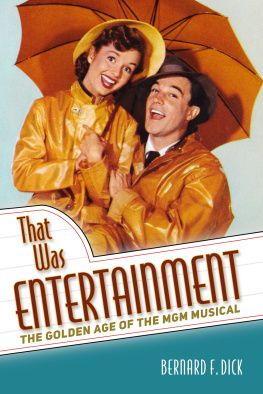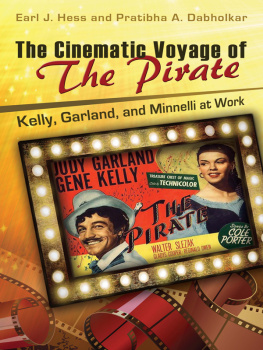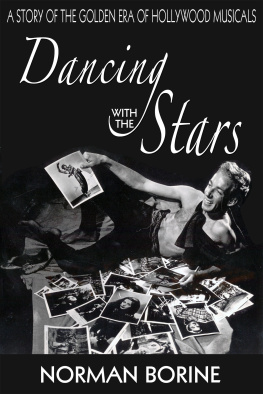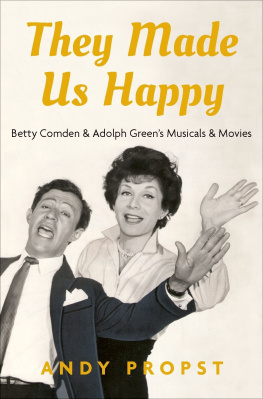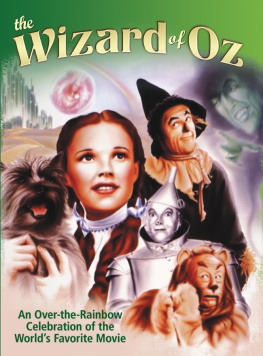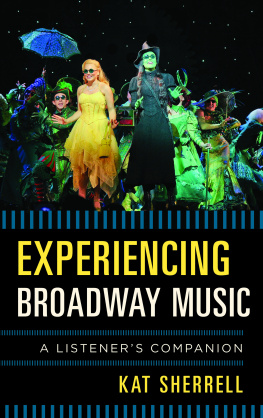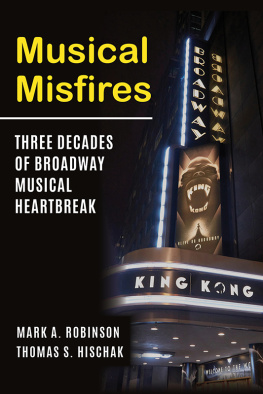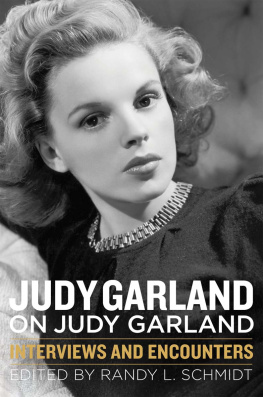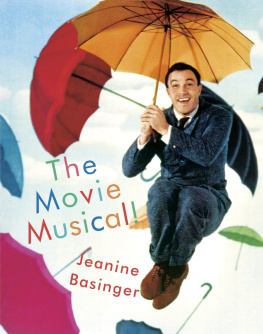Bernard F. Dick - That Was Entertainment: The Golden Age of the MGM Musical
Here you can read online Bernard F. Dick - That Was Entertainment: The Golden Age of the MGM Musical full text of the book (entire story) in english for free. Download pdf and epub, get meaning, cover and reviews about this ebook. City: Jackson, year: 2018, publisher: University Press of Mississippi, genre: Non-fiction. Description of the work, (preface) as well as reviews are available. Best literature library LitArk.com created for fans of good reading and offers a wide selection of genres:
Romance novel
Science fiction
Adventure
Detective
Science
History
Home and family
Prose
Art
Politics
Computer
Non-fiction
Religion
Business
Children
Humor
Choose a favorite category and find really read worthwhile books. Enjoy immersion in the world of imagination, feel the emotions of the characters or learn something new for yourself, make an fascinating discovery.
- Book:That Was Entertainment: The Golden Age of the MGM Musical
- Author:
- Publisher:University Press of Mississippi
- Genre:
- Year:2018
- City:Jackson
- Rating:5 / 5
- Favourites:Add to favourites
- Your mark:
That Was Entertainment: The Golden Age of the MGM Musical: summary, description and annotation
We offer to read an annotation, description, summary or preface (depends on what the author of the book "That Was Entertainment: The Golden Age of the MGM Musical" wrote himself). If you haven't found the necessary information about the book — write in the comments, we will try to find it.
That Was Entertainment: The Golden Age of the MGM Musical traces the development of the MGM musical from The Broadway Melody (1929) through its heyday in the 1940s and 1950s and its decline in the 1960s, culminating in the notorious 1970 MGM auction when Judy Garlands ruby slippers from The Wizard of Oz, Charlton Hestons chariot from Ben-Hur, and Fred Astaires trousers and dress shirt from Royal Wedding vanished to the highest bidders.
That Was Entertainment uniquely reconstructs the life of Arthur Freed, whose unit at MGM became the gold standard against which the musicals of other studios were measured. Without Freed, Judy Garland, Gene Kelly, Fred Astaire, Ann Miller, Betty Garrett, Cyd Charisse, Arlene Dahl, Vera-Ellen, Lucille Bremer, Gloria DeHaven, Howard Keel, and June Allyson would never have had the signature films that established them as movie legends.
MGMs past is its present. No other studio produced such a range of musicals that are still shown today on television and all of which are covered in this volume, from integrated musicals in which song and dance were seamlessly embedded in the plot (Meet Me in St. Louis and Seven Brides for Seven Brothers) to revues (The Hollywood Revue of 1929 and Ziegfeld Follies); original musicals (Singin in the Rain, Easter Parade, and Its Always Fair Weather); adaptations of Broadway shows (Girl Crazy, On the Town, Show Boat, Kiss Me Kate, Brigadoon, Kismet, and Bells Are Ringing); musical versions of novels and plays (Gigi, The Pirate, and Summer Holiday); operettas (the films of Jeanette MacDonald and Nelson Eddy); mythico-historical biographies of composers (Johann Strauss Jr. in The Great Waltz and Sigmund Romberg in Deep in My Heart); and musicals featuring songwriting teams (Rodgers and Hart in Words and Music and Kalmar and Ruby in Three Little Words), opera stars (Enrico Caruso in The Great Caruso and Marjorie Lawrence in Interrupted Melody), and pop singers (Ruth Etting in Love Me or Leave Me). Also covered is the water ballet musicalin a class by itselfwith Esther Williams starring as MGMs resident mermaid. This is a book for longtime lovers of the movie musical and those discovering the genre for the first time.
Bernard F. Dick: author's other books
Who wrote That Was Entertainment: The Golden Age of the MGM Musical? Find out the surname, the name of the author of the book and a list of all author's works by series.

